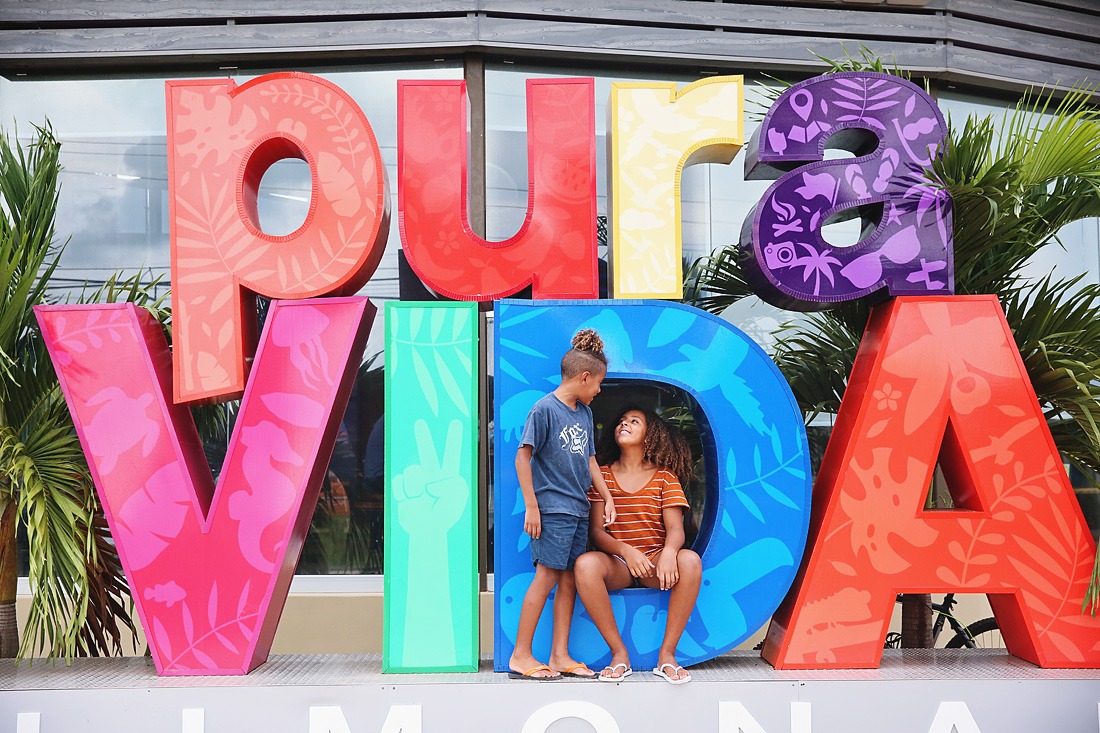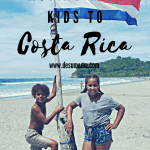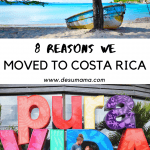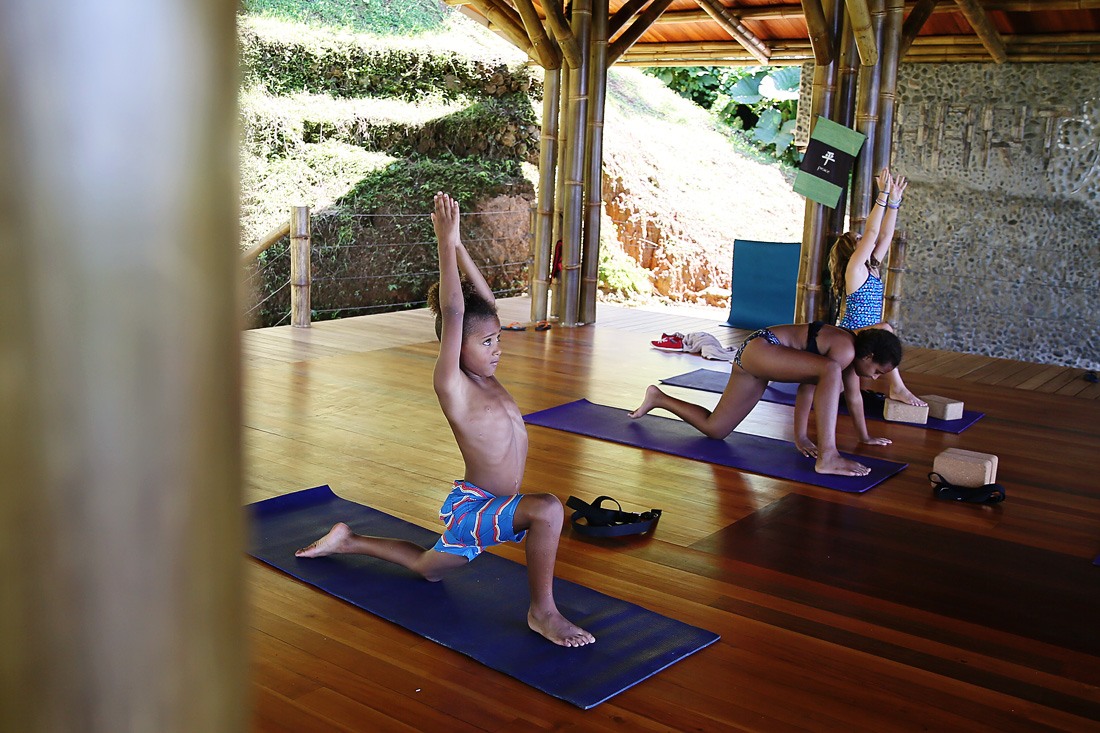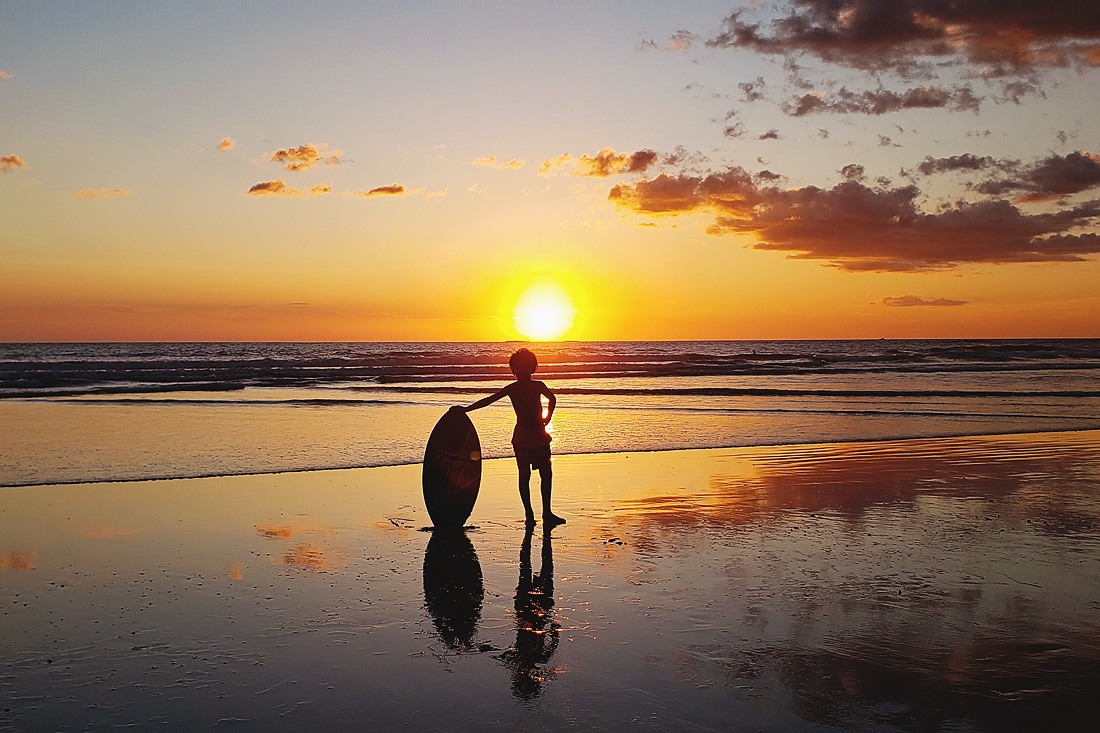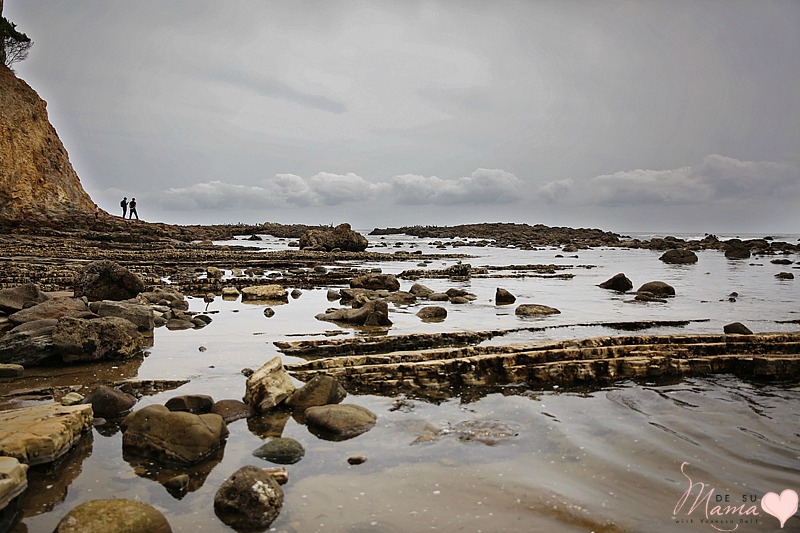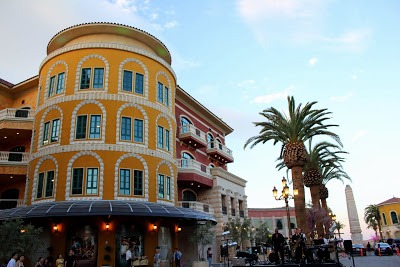Prior to moving to Costa Rica full time, my kids attended a bilingual summer camp at an international school two summers in a row. They made friends, we explored various areas of the country and I became comfortable with navigating the Costa Rican culture. Last year my husband met us here, working remotely instead of taking vacation time when he asked, “tell me again why aren’t we living in Costa Rica?”
Moving to Costa Rica
My husband’s blessing was all I needed to set our adventure in motion. Although the decision to live in Costa Rica was quick, the seed was planted years before.
As soon as we returned to California, I made arrangements to get back to Costa Rica within 4 weeks. I enrolled the kids in private school, signed a condo lease and even bought a car. Despite the horror stories you find online, moving from the US to Costa Rica was quite easy.
No, we aren’t rich or have a trust fund. The cost of living in Costa Rica – though high for Central America – is one reason living here made sense for our family. Moving to Costa Rica was the right decision, but it’s not all sunsets and sloths.
Here are 8 reasons why moving from the United States to Costa Rica made sense for us.
Related: Our Complete Guide to Costa Rica with Kids
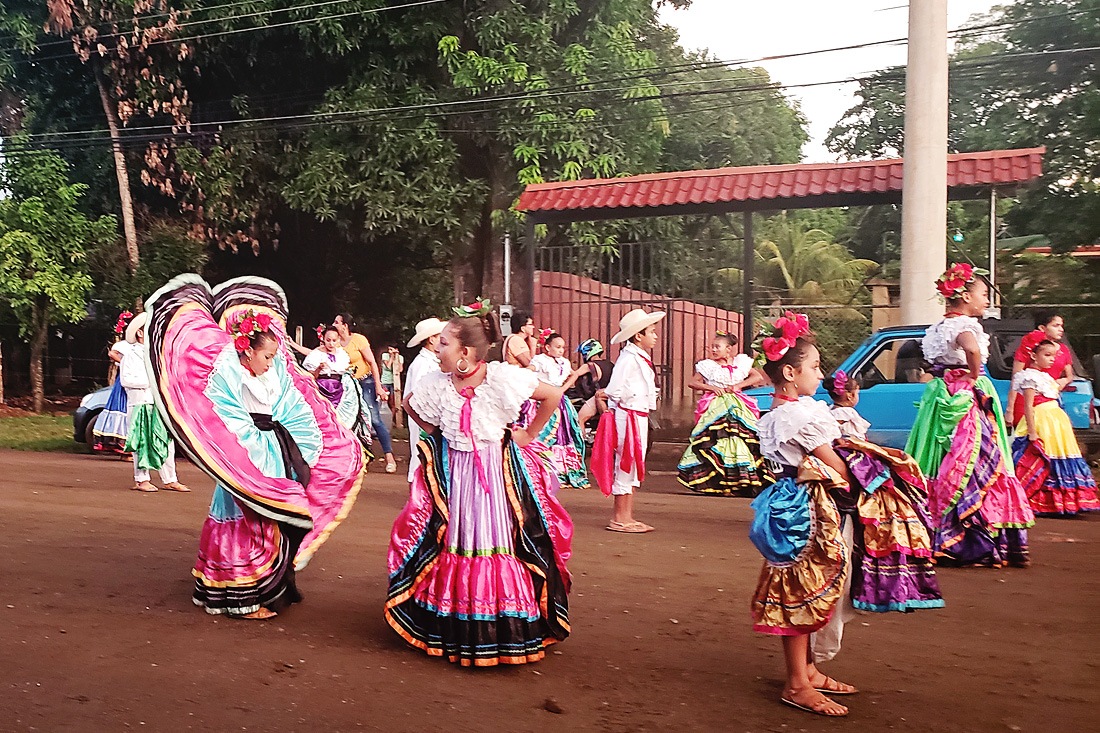 Costa Rican Culture
Costa Rican Culture
Much like other Latin American countries, Costa Rican culture is a blend of indigenous heritage and Spanish colonial influence with a dash of Jamaican, Chinese, and other immigrant cultures lending character and customs. The result is a nation of laid-back, friendly, and happy people who value, not just their culture, but the stable, nonviolent neutrality of their political history.
Costa Rica is also home to one of the five “Blue Zones”. The Nicoya Peninsula has five cantons where middle-age mortality is lowest and centenarians are the most abundant. Within these cantons on Guanacaste’s Nicoya Peninsula, heart disease, many types of cancer, and diabetes are hardly seen.
Of course, immersing ourselves in Costa Rica’s native language of Spanish is an important factor too.
Tourist Visa and Residency
Becoming Costa Rican residents through temporary or permanent visas is a viable option. The cost of entry is low with varying investment or pension requirements. Costa Rica residency takes a fair amount of time, so seeking professional help from a lawyer is recommended.
Or, though sometimes frowned upon, tourists can remain in the country on 90-day visas. These “perpetual tourists” are able to own businesses, property, even cars. They do “border runs” to Nicaragua or Panama as day trips or back home to their mother countries, exiting and entering Costa Rica to receive their next 90-day visa. It’s not ideal, but a reality for many folks living in Costa Rica.
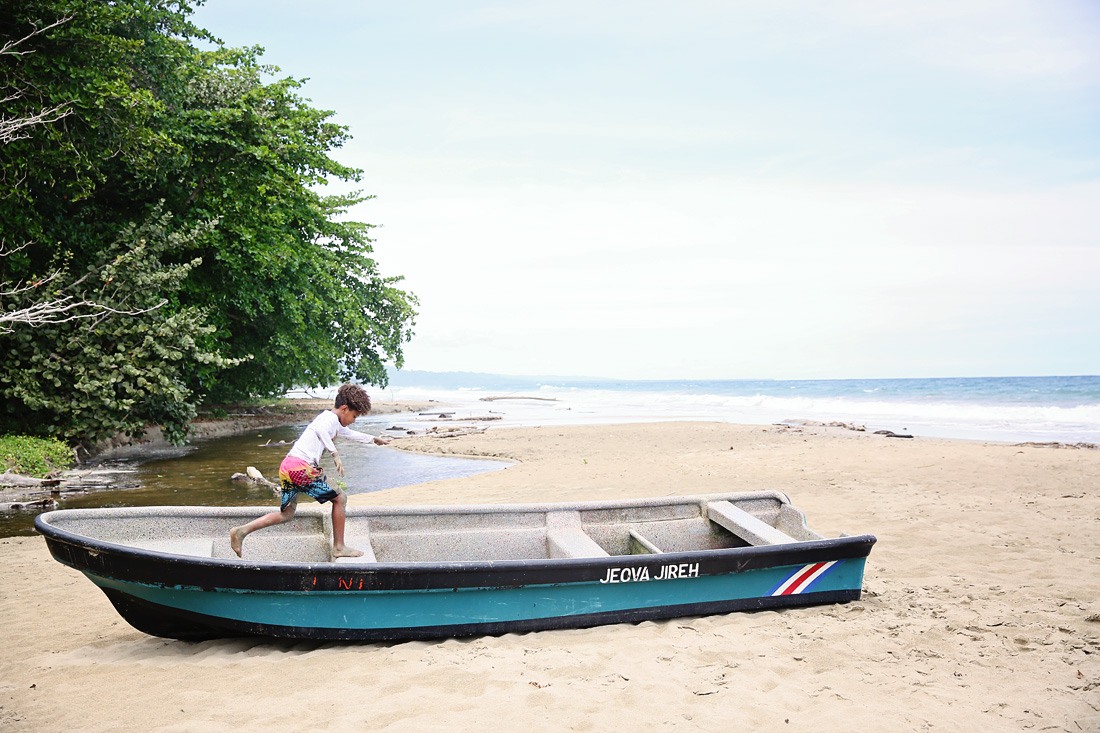 Cost of Living
Cost of Living
How much does it cost to live in Costa Rica? As much as you want it to! Costa Rican cost of living varies tremendously according to what you need and value. There are families spending less and those who spend much, much more. I’ll write a detailed report of our living expenses in Costa Rica, but suffice it to say it’s less than the cost of living in Southern California.
Rent on our two-bedroom condo to American standards in a small pueblo, utilities, private international school for two kids and all cash expenses each month comes out to less than just our mortgage + utilities in California. So approximately $3,000/month. We paid cash for our Hyundai Tuscon, a reliable and easy to repair 5-seater, so our transportation costs are minimal. (Another post on the Costa Rican car buying saga another time.)
Food costs in Costa Rica can rival those of the states. If you cook like a Tico that cost is much lower. That being said, Costa Rica is among the world’s leading users of pesticides based on per capita according to a 2015 Semanario Universidad report detailing the Regional Institute of Toxic Subantance Studies (IRET) on the country’s use per hectare of farmland. Therefore, a considerable amount of our monthly cash expenses goes to organic produce purchased at local farmer’s markets – or ferias.
Low Cost/Universal Healthcare
This is a big deal for our family who has various needs and insane medical premium costs in the United States. Costa Rica offers universal health care, called Seguro Social or caja, to its citizens and permanent residents. It is among the best in Latin America.
Private medical clinics and hospitals are also available for cash-paying customers. For example, when my son needed 3 stitches on his head, we paid $150 total (including pain medication). When my daughter needed antibiotics for a severe sinus infection and fever, it was $85 total.
You can also buy Costa Rica health insurance for expats which are private options at a low cost. In the event we no longer have insurance in the states, we’ll purchase a policy.
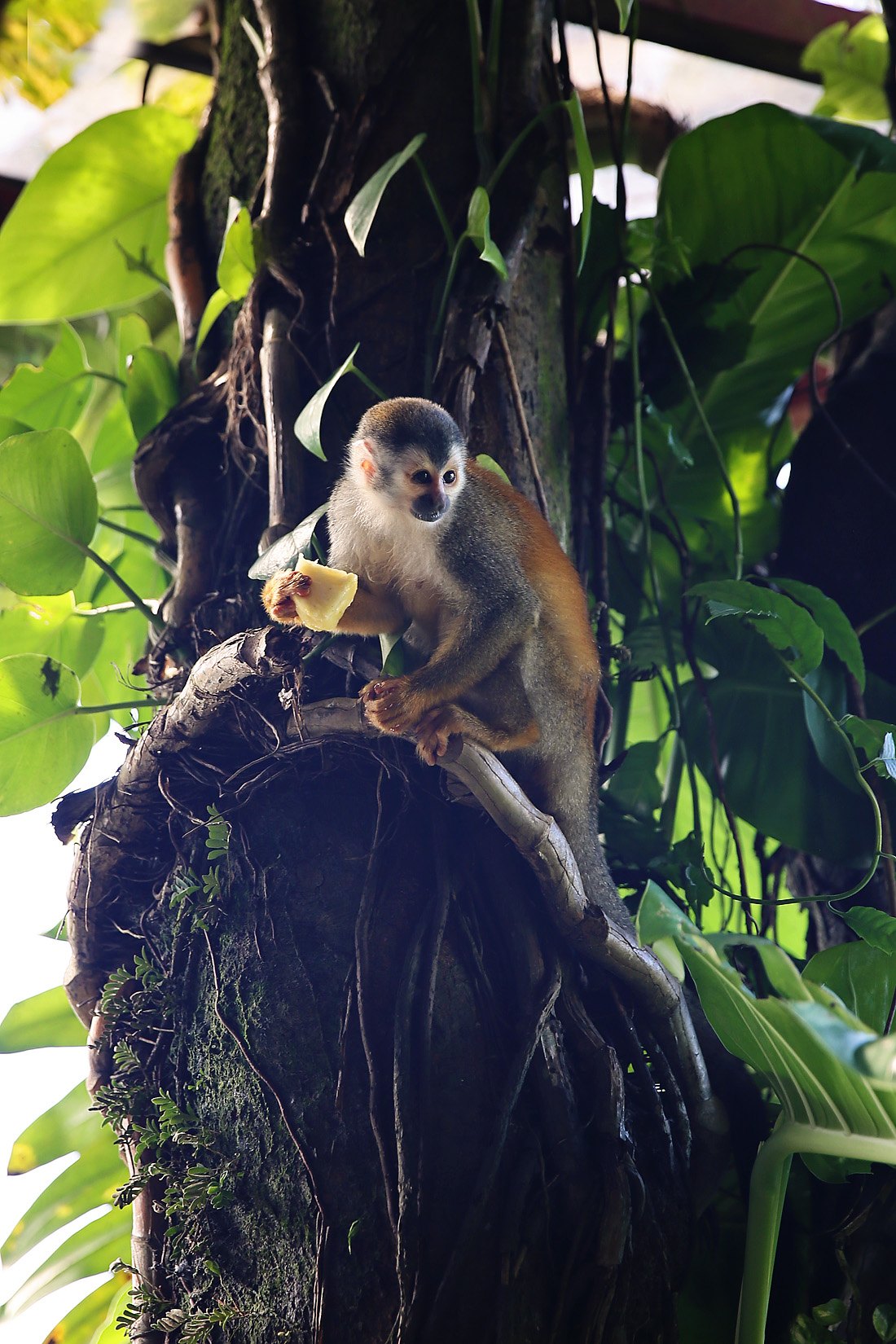
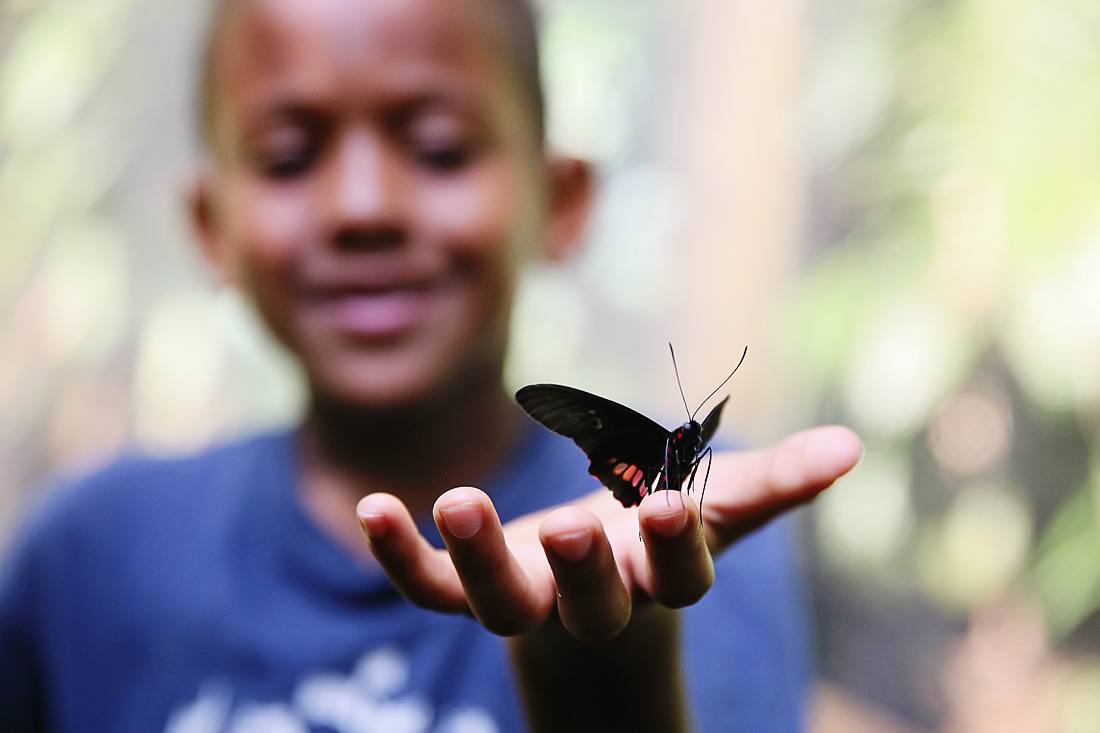 Costa Rican Beaches, Nature and Wildlife
Costa Rican Beaches, Nature and Wildlife
Costa Rica’s biodiversity rivals other countries much larger and wealthier. So much land is protected by the government that there is a palpable difference as you cross the border. Costa Rica’s efforts in environmental protection have made us better global citizens and consumers. And since my daughter loves animals and my son has been obsessed with bugs since he was a toddler, Costa Rica wildlife has become an exciting part of our daily lives. Some people see squirrels out their front door, we see monkeys!
The beaches in Costa Rica are as beautiful as they are varied. You can have the best surf, white or black sand beaches, thick mangroves… and my favorite of all, long stretches of untouched beach without another soul in sight. Waterfalls are everywhere. Sunsets in Costa Rica are the most beautiful I have ever seen.
Expats in Costa Rica
Moving to Costa Rica with kids in tow is surprisingly easy because many families have done it before. Once you’re here, life doesn’t feel all that exotic. Expats in Costa Rica are thriving – their businesses, land/homeownership, school communities are growing – all due to the stable government and low(ish) cost of living. You can find Costa Rica expat communities living all throughout the country.
For many people, this might actually be a con or negative to living abroad. I speak the language and love the culture, and still enjoy the diverse communities built by Ticos and immigrants together. Moving to a foreign country with young kids can be difficult on its own, so having little reminders of “home” has proven to be a benefit.
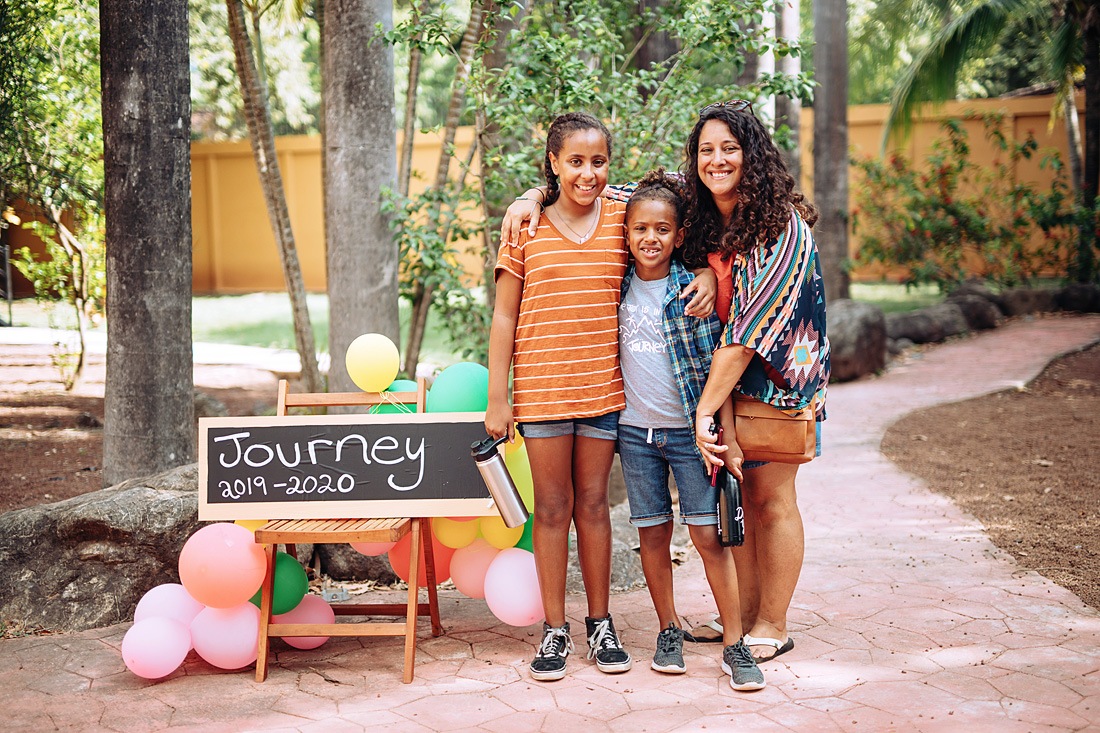 Private (Progressive) Schools
Private (Progressive) Schools
In Los Angeles, a private school with small class sizes and progressive education models (such as self-directed learning, democratic models, project-based, dual language, etc) can cost up to $40,000/year. PER KID! Our local elementary school is free and dual language (one of the best in the state, actually), but it’s almost 900 students and growing. Funds for school counselors are being cut, as well as other funding. And let’s not even get into the trauma of “active shooter drills”.
But what was really concerning for us was the lack of autonomy the kids (and teachers, to be honest) were afforded when it comes to how and what they learn. Because, in part, of class sizes, teaching the individual child as a dynamic human being is nearly impossible. Ultimately, I’m not convinced our school system is preparing kids for future economies.
My 4th-grade daughter is currently taking a class on the core principles for successful thinking and communication for collaboration. Through research and team games, they’re studying various thought systems, objectivity vs subjectivity, logical fallacies and cognitive biases, as well as the importance of context, metacognition and introspection by way of the Socratic Method. They’re constantly being challenged to apply those thinking principles throughout their education, whether that be in their advanced mathematics class or their farm and garden elective.
Another consideration is the use of conscience discipline instead of punitive, reactionary measures. Even as an over-protective mother to a black son, I underestimated how impactful this change was for my 2nd-grader who, on the second day of school, asked the Director, “How do you get in trouble here? Like, how do I know when I’m in trouble? Do I have to pull a card or move my clip?”.
Through freedom of choice, he’s learning about natural consequences and is motivated to read, practice math or just sit still for instruction because he feels safe, loved and excited. Last year he was just riddled with performance anxiety.
Pura Vida Vibes
Being black in America (or Latino, for that matter) feels overwhelming right now. It can feel hard to just be. Admittedly, it has been hard for a long time as middle-class Californias striving to give our kids “the best” and inadvertently living a lonely, false narrative.
Combine that with our culture of consumerism, statistics regarding being black in schools, the cost of living and economic segregation of most urban centers, plus just the general vibe of American news cycles, 2020 felt like a good time to radically shift what our family considered “normal”.
In our Costa Rica life, it’s not normal for kids to be super overscheduled, riddled with pressure to compete or sleep-deprived from so much stimulus. People are industrious, many seeking entrepreneurship, raising kids to ask how they can contribute to society and offer solutions. It’s normal for kids to be allocated ample space to run and swim while adults eat dinner or catch up with friends because restaurants account for a cultura de familia when designing their spaces. It’s not perfect, but it’s definitely easy livin’ for a family with kids in Costa Rica.
How to Move to Costa Rica
My husband and I are aware of our privilege as United States citizens. We’re also grateful to this beautiful country for showing us the diverse ways to live a productive, simplified and happy life. The world is big, my friends, and not as scary as the media wants us to believe. We aren’t stuck to one narrative.
Once you’ve actually decided to go for it, moving here is only as complicated as you make it. We haven’t sold our house (yet) or made any permanent decisions, which has given us time to asses our new lifestyle.
This is how we moved to Costa Rica (as a perpetual tourist, until we begin residency), in 3 easy steps…
Buy a plane ticket (with proof of exit flight or bus ticket within 90days). We buy one-way, refundable tickets in advance that we cancel as needed and plan to leave the country every 90 days. Not as daunting as it may sound, being a perpetual tourist (along with the kids’ flex schedule) has been a great way to calm my wanderlust!
Secure housing. I’ll write more about this, but my advice is to secure housing for a month or so near whatever community/point of reference is anchoring you first. I don’t recommend signing a long term lease sight unseen – there are so many factors you need to be here to understand. Get here first, then find a rental. Most rentals are fully furnished, complete with kitchen supplies.
Move! People bring 20+ suitcases, containers of storage and, in general, lots and lots of stuff. That’s not our vibe. Because we’re renting a furnished condo (and my husband travels back to the states often enough), all we packed was one carryon + personal item each, and then one checked bag with things like hair products, good quality shoes and lots of sunblock/bug spray. The kids brought most of their sports equipment and I brought large, framed photos of our family to hang in our condo (using command strips).
What’s Next?
All our focus is on family right now. My personal goals for 2020 are to heal spiritually and physically while growing this blog’s traffic with culturally rich and practical tips on parenting. My husband has career goals too, so he’ll be coming back and forth until the Pura Vida vibe has pulled him in all the way in.
Financially, if we decide to stay here long term, our goal would be to build a home with cash reserves to alleviate housing costs and secure our financial independence. I’m sure we’ll talk more about this in future posts.
I know, we’re crazy. It’s taken some time to share this online because, frankly, not everyone is happy with the decision. But, I’ll promise you the same thing I promised my mother: we’re gonna be okay! The kids and my marriage are both thriving, my health is renewing and even our bank accounts are enjoying the lighter load.
Moving to Costa Rica isn’t for everyone, but it’s definitely a simple and chill way of life that we’re honored to explore.

